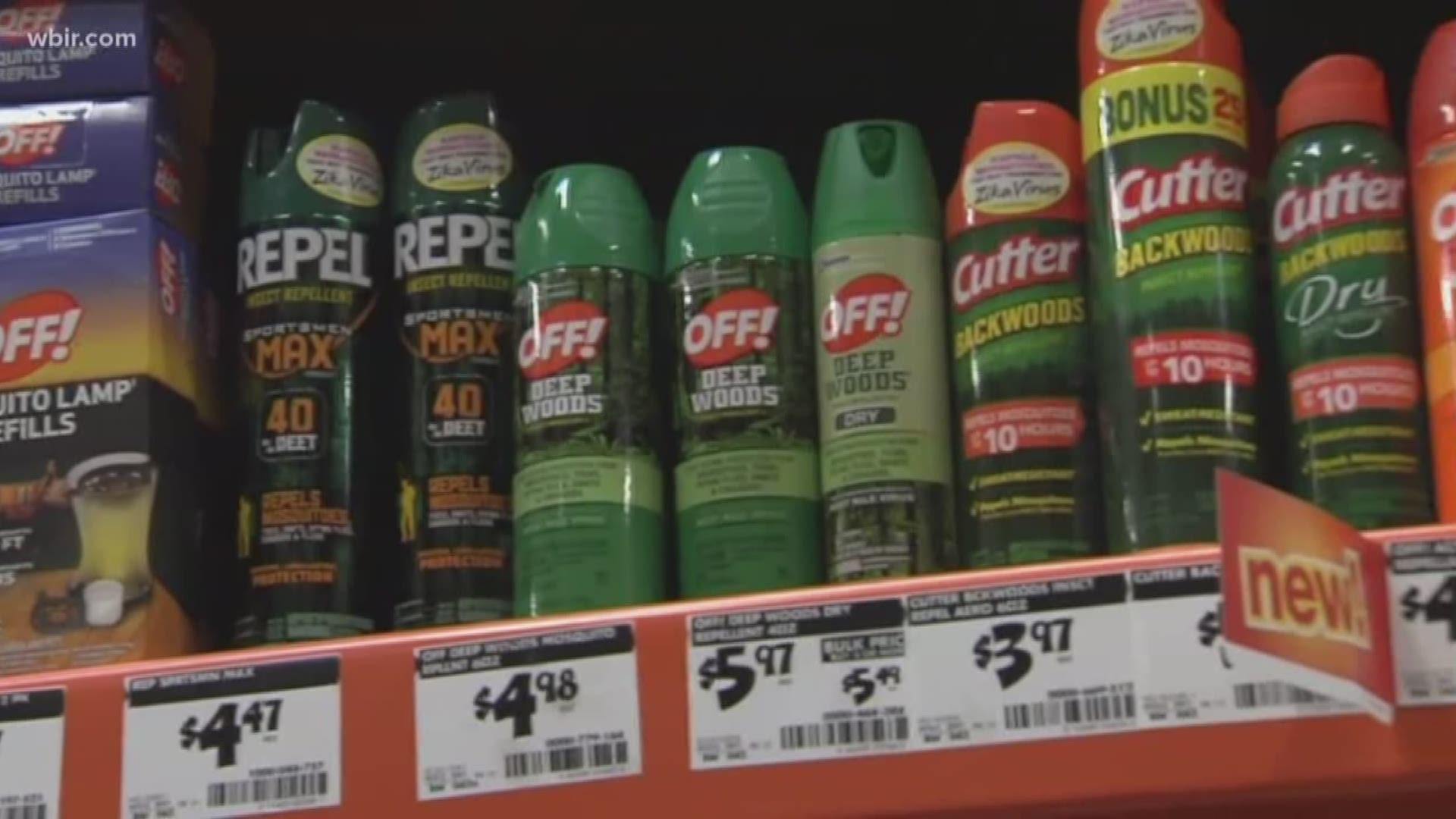KNOX COUNTY, Tenn. — Culex mosquitoes in West and East Knoxville have tested positive for West Nile virus in the Rocky Hill area of West Knoxville and Milligan Street area of East Knoxville, according to the health department.
Following Centers for Disease Control and Prevention protocol, the Knox County Health Department will spray for mosquitoes in these areas on Thursday, Sept. 19 between 8:30 p.m. and 2 a.m., weather permitting.
The spraying is supposed to reduce the Culex mosquito population and the risk of WNV spreading to humans.
According to the health department, signs will be posted in the affected neighborhoods to alert residents, who are asked to stay inside during spraying and keep pets inside or in the backyard.
Rocky Hill spray area:
Sentry Lane; Antrim Way; Red Bay Way; Tranquilla Drive; Hampson Lane; Redeemer Lane; Pinner Drive; Scottie Lane; Hawthorne Drive; Ownby Lane; Alki Lane; Dukesbury Drive; Kingsbury Drive; Queensbury Drive; Scotsbury Circle; Village Drive; Covington Drive; Wilmington Drive; and Rocky Hill Ballfields will be treated on Thursday, Sept. 19, weather permitting. Follow-up spraying is scheduled for Thursday, Oct. 3, weather permitting. A map of the area is included below.
Milligan Street spray area:
All areas east of North Cherry Street, west of Prosser Road, north of Magnolia Avenue and south of Interstate 40 will be treated Thursday, Sept. 19, weather permitting. Follow-up spraying is scheduled for Thursday, Oct. 3, weather permitting. A map of the area is included below.
RELATED: Spraying set for Tower Drive area Thursday after mosquitoes test positive for West Nile virus
To reduce the risk of contracting WNV and other mosquito-borne diseases, KCHD recommends:
- Applying repellants to skin often when outdoors; repellants can be lotions, liquids or sprays. The CDC recommends the use of Environmental Protection Agency (EPA)-registered repellants containing one of the following ingredients: DEET, picaridin, oil of lemon eucalyptus, para-menthane-diol, 2-undecanone or IR3535. The duration of protection varies by repellant. Read labels on products to determine when reapplications are necessary for optimal protection.
- Wearing socks and long, loose, and light-colored shirts and pants.
- Treating clothing with permethrin or purchasing pretreated permethrin clothing.
- Disposing of, regularly emptying, or turning over any water-holding containers on your property such as tires, cans, flower pots, children’s toys and trash cans to reduce mosquito habitats.
- Using larvicides, such as mosquito torpedoes or mosquito dunks, to prevent mosquito proliferation in large water-holding containers, including bird baths and garden water features. If used properly, larvicides will not harm animals.
To reduce the risk of mosquito-borne disease, KCHD conducts a West Nile virus control program during summer and fall months. As the weather warms each spring, public health professionals begin a weekly process of trapping and testing mosquitoes for WNV, a mosquito-borne disease which can infect humans, horses and birds. From March until the first frost, KCHD also uses larvicides in areas with standing water to prevent mosquito proliferation. These efforts are in addition to KCHD’s work to assess and monitor for other mosquito-borne illnesses. More information is available by calling 865-215-5200 or visiting knoxcounty.org/health.
More tips can be found at knoxcounty.org/health/mosquitoes.

